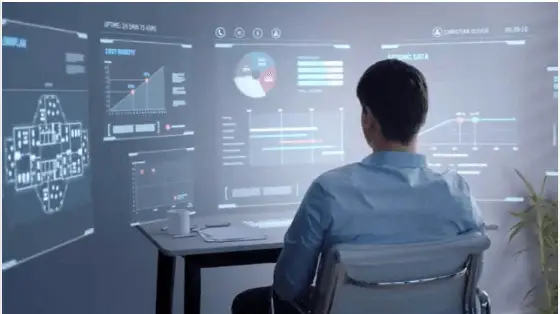
Visits: 0
In this blog post, we delve into the world of artificial intelligence (AI) and its increasing significance in both education and government. We explore various AI use cases in education, including how it can enhance learning, personalize education, and improve accessibility for all students. Additionally, we examine how AI is being utilized in government to improve efficiency, decision-making, and citizen services. Finally, we discuss the future of AI in these sectors and what we can expect from this rapidly evolving technology. Join us on this journey as we explore the exciting possibilities of AI in education and government.
1. Introduction: Understanding AI and Its Growing Importance in Education and Government
Artificial Intelligence (AI) is a rapidly growing field that has the potential to revolutionize various industries, including education and government. AI refers to the development of computer systems that can perform tasks that typically require human intelligence, such as learning, problem-solving, and decision-making. As AI technology continues to advance, it is becoming increasingly important for educators and government officials to understand its potential impact on their respective fields. In this article, we will explore the use cases of AI in education and government, and how it can enhance learning, improve efficiency, and provide better services to citizens.
2. AI Use Cases in Education: Enhancing Learning, Personalization, and Accessibility
Artificial intelligence (AI) is transforming the way we learn and access education. It has the potential to enhance learning, personalize education, and make it more accessible to everyone. AI-powered tools can help teachers create customized lesson plans based on individual student needs and abilities. This means that students can learn at their own pace and get the support they need to succeed.
AI can also improve accessibility for students with disabilities. For example, speech recognition technology can help students who have difficulty typing or writing. AI-powered virtual assistants can provide real-time assistance to students who need help with homework or assignments. Additionally, AI can be used to create interactive learning experiences that are engaging and fun.
Another area where AI can have a significant impact is in personalized education. AI-powered algorithms can analyze data from student performance and provide recommendations for personalized learning paths. This means that students can receive targeted instruction that is tailored to their specific needs and learning styles.
Overall, AI has the potential to revolutionize education by making it more accessible, personalized, and effective. As AI continues to evolve, we can expect to see even more innovative use cases in education.
3. AI Use Cases in Government: Improving Efficiency, Decision-Making, and Citizen Services
Artificial intelligence (AI) has the potential to revolutionize government services by improving efficiency, decision-making, and citizen services. One of the most significant benefits of AI in government is its ability to automate routine tasks, freeing up staff time for more complex and critical work. For example, AI can help with data entry, document processing, and customer service inquiries.
AI can also improve decision-making in government by providing real-time insights and analysis. By analyzing large amounts of data, AI can identify patterns and trends that humans may miss, allowing governments to make more informed decisions. This can be particularly useful in areas such as public safety, where AI can help identify potential threats and respond quickly to emergencies.
Finally, AI can enhance citizen services by providing personalized and efficient interactions. Chatbots, for example, can provide 24/7 support to citizens, answering questions and providing information on government services. AI can also help with language translation, making it easier for non-native speakers to access government services.
Overall, AI has the potential to transform government services by improving efficiency, decision-making, and citizen services. As governments continue to explore the possibilities of AI, we can expect to see even more innovative use cases in the future.
4. The Future of AI in Education and Government
As we have seen, AI has the potential to revolutionize both education and government services. With its ability to analyze vast amounts of data and make predictions based on patterns, AI can help educators personalize learning experiences for students and make education more accessible to all. In government, AI can improve efficiency, decision-making, and citizen services, leading to better outcomes for everyone.
However, as with any new technology, there are also concerns about the impact of AI. Some worry that it could lead to job loss or exacerbate existing inequalities. It is important that we approach the use of AI in education and government with caution, taking into account these potential risks and working to mitigate them.
- How AI Will Blanket Your World: Unveiling the Expanding Reach of Artificial Intelligence
- Don’t Count Out Google and Its AI Chatbot Bard: Exploring the Future of Conversational AI
- Revolutionizing AI and Power Apps: Microsoft’s Integration of GPT Explained
- Dell and Nvidia Team Up to Enter the Generative AI Market: What You Need to Know
Wrapping Up
Overall, the future of AI in education and government looks bright. As the technology continues to evolve and become more sophisticated, we can expect to see even more exciting use cases emerge. By embracing AI and using it responsibly, we can create a better future for ourselves and for generations to come.


%20(1).png)

